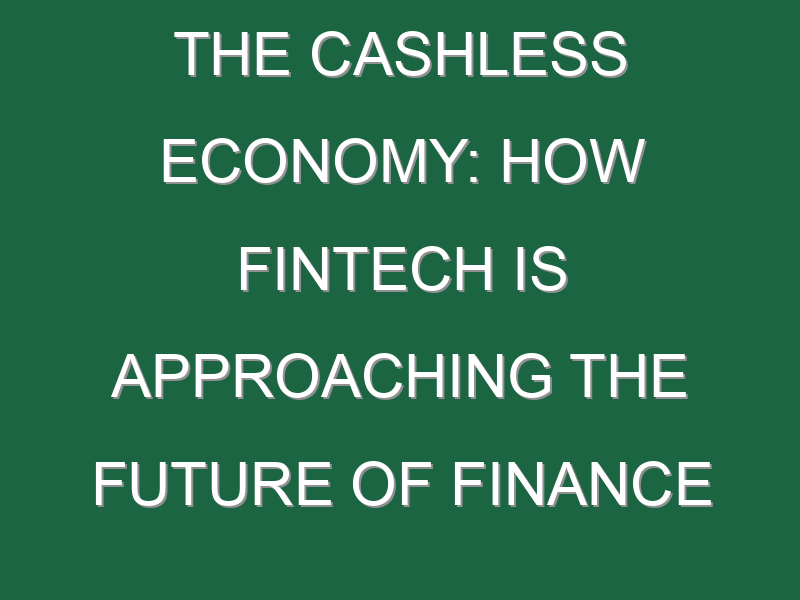Subscribe to The Ledger for expert weekly analysis on fintech’s big stories, delivered free to your inbox.
Cashless payments were on the rise before the pandemic hit, and now, eight months into its grip on the U.S., their use is accelerating even faster. This was the topic of conversation at Fortune’s latest Brainstorm Finance panel on the cashless economy. Host Jen Wieczner and senior writer Robert Hackett were joined by panelists Stephanie Cohen, chief strategy officer at Goldman Sachs, Anthony Noto, CEO of SoFi, Craig Vosburg, President of North America at Mastercard, Emilie Choi, COO of Coinbase, and surprise guest Nima Ghamsari, founder and CEO of Blend.
Goldman, SoFi, Coinbase, and Mastercard all work with partners to offer credit and debit cards, which play an important role in all four companies’ consumer finance strategies, even as they look to digital payments (sans plastic) to build out the future financial ecosystem.
“We’ve seen a very long running trend of migration of payments behaviors from consumers from paper based forms of payments to electronic, and cards have certainly been an important manifestation of that,” Vosburg said. “That’s something that is only accelerated and accelerated in pretty dramatic ways over the course of this year as consumer behavior has changed so dramatically in the face of the pandemic.”
As these electronic payments and the services associated with them proliferate, particularly due to the pandemic and the incoming presidential administration, the financial world is changing rapidly. Here’s what the panelists see on the horizon.
First, so-called “challenger banks” are on the rise, and SoFi just got approval for a national bank charter, which will allow the fintech company to expand its offerings and reduce costs substantially, while lowering its regulatory burden. There have also been reports that Coinbase looked into its own banking license in years past, but Choi said there was nothing to announce in that realm for now. She did note, though, that more regulatory clarity for non-bank financial companies is a goal of Coinbase’s, as it is currently regulated, much like SoFi was, by a patchwork of agencies. She said a more comprehensive and seamless approach to that regulation would allow for more solutions and innovations.
Choi also said Coinbase thinks “crypto is gaining steam in D.C.” Fintech companies were given a role in making PPP loans as part of the CARES Act, and cryptocurrency was floated as an option for getting stimulus payments to unbanked and underbanked individuals. Though it was ultimately stripped from the bill, Choi believes blockchain and crypto will find success in Washington.
“When we think about the promise of crypto, it actually should appeal to both sides of the table regardless of where you sit on the political spectrum,” she said. “Because on the one hand, you have this, this kind of ethos of empowering the individual, and on the other hand you have this idea of making sure that you offer tools and services that appeal, and work for the unbanked and underbanked.”
Another way that those outside of the traditional financial system can be helped by fintech, according to Vosburg, is by using their data to get better access to credit. Mastercard’s pending acquisition of Finicity, approved by the Department of Justice earlier this week, will aid the payments company and its partners in using data points like evidence of income, transaction activity, and account balances—all with consumer consent, Vosburg assured the Zoom audience—to demonstrate creditworthiness in nontraditional ways.
President-elect Joe Biden has promised to prioritize tearing down barriers to entry to the formal financial system in America, benefitting the unbanked and underbanked, a group largely made up of communities of color that have been disadvantaged within and excluded from that system since its inception. Blend’s Ghamsari, Coinbase’s Choi, and SoFi’s Noto all said they are supporters of at least some of Biden’s plans for financial relief.
Ghamsari said he is hopeful that Biden will encourage the widespread adoption of technology that will allow smaller, more community-based banks, which often serve lower-income, unbanked, and underbaked people, to better help their customers. Noto said he and his SoFi colleagues “are huge supporters of student loan reform,” despite the fact that the company refinances loans, because “it’s better for the country.”
Those hopes, though, seem to rest on what happens in the Senate run-offs in Georgia, Noto said. If Democrats take control of the Senate, Biden will be able to much more easily push legislation through to support the financial industry and those it serves. If Republicans prevail, America will likely be stuck in gridlock.
More must-read finance coverage from Fortune:
- Why the counties Joe Biden won represent 70% of U.S. GDP
- Will another $1,200 stimulus check ever come? Here’s what we know
- DoorDash IPO filing shows it could turn a profit only at height of lockdowns
- The pandemic may be the greatest environment for business fraud in decades
- A journalist-turned-detective on how corporate America depends on private sleuths




